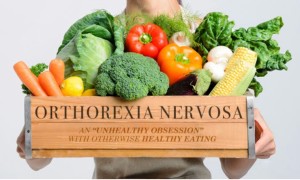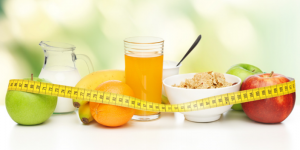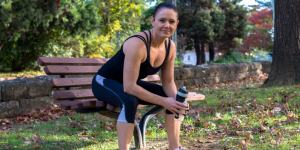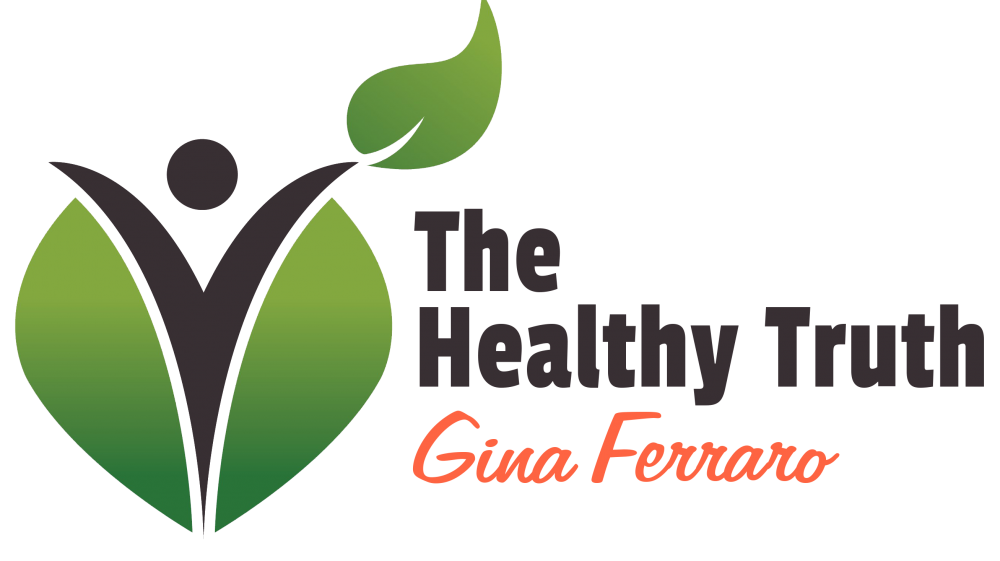by Gina Ferraro | Jun 4, 2015 | Diet, Disease prevention, Health, Mindset, Nutrition, Wellness
,
 Orthorexia nervosa is an unhealthy obsession with healthy eating. It is a “health food eating disorder”. Yes. You read it correctly. When anyone has an exaggerated focus on something – even something healthy, it can become problematic.
Orthorexia nervosa is an unhealthy obsession with healthy eating. It is a “health food eating disorder”. Yes. You read it correctly. When anyone has an exaggerated focus on something – even something healthy, it can become problematic.
Today more than ever we have cult-like behaviour from people following multitudes of fad diets. As a result, they follow strict regimes of eating, not allowing this or that to the point of the ridiculous. Furthermore, there are extremists who are devoted to cleanses, detoxes, Atkins, paleo, veganism, gluten- free, juicing…….the list goes on and on.
However, don’t mistake my blog….I am NOT telling you that focusing on healthy eating is wrong or that you should throw caution to the wind and eat whatever you like. I am advising you to make educated decisions towards healthier eating behaviour where it doesn’t negatively impact your life. When your healthy eating completely consumes you to the point of obsession, (specifically, where you cannot function without total commitment and are filled with guilt at the very thought of other options), then it is a cause of concern. Clearly it is a problem if it causes a person distress,
Additionally, an unhealthy obsession with food can affect friendships, relationships, and even your own sanity. In particular, it can cause social isolation and mental health problems. It is important to understand that stress causes many physiological complications too. Consequently, stressing over food can manifest itself negatively by causing health problems in the very body you are trying to keep healthy! Ironic isn’t it?
Focusing on health doesn’t need to be a chore. We shouldn’t constantly try and eat like bodybuilders preparing for competition! I have been around these athletes for many years and trust me, they aren’t happy to be on such restricted eating regimes and don’t eat that way once their comp is over. Make healthier food options whenever possible but don’t let your desire for health stop you from living! Find a balance and don’t make food the primary focus of your life.
by Gina Ferraro | Apr 5, 2015 | Diet, Disease prevention, Health, Nutrition, Weight loss, Wellness

It is common for people to drop grocery products into their trolleys out of habit, without arming themselves with the information required to determine if their choice was the best one for their body, or just for their taste buds! So many of us grocery shop blindly and wonder why our health is compromised. Supermarkets are clever little manipulators. They structure their products to influence your “choices”. Manufacturers pay for shelf positioning, so those who pay the most get their products placed in the most convenient line of sight for consumers … eye level. The healthier more nourishing and nutritious choices are usually harder to find, and if you aren’t specifically looking for them, they would be easy to miss. And don’t get me started on how they strategically place chocolates and chips at the checkouts to tempt you and your children whilst you are waiting in line! So how do you make healthier shopping choices? Here are some basics to guide you.
- Get into the habit of comparing items and identify healthier options (see below).
- Read & understand the nutritional panel. The lowest calories are not always the healthiest options. Check out this video https://www.youtube.com/watch?v=KMGUmcveQeg
- Examine the ingredients list. The order of ingredient represents its amount in the product, i.e. if sugar is listed as the first ingredient, then sugar is the main ingredient in the product. This would be a good reason for returning that item back to the shelf! Look for products that contain healthier ingredients and stay away from those E numbers as much as possible. (There are great apps for your phones that help you identify those confusing E numbers so this is something I recommend).
- Allow more time on your first few shops to study the products.
- Avoid grocery shopping when you are hungry. You will tend to make less healthier choices.
- Compare 100g not per serve. Comparing one product with a 50g serving to another with a 35g serve can be easily misleading.
- Total energy is important but low HI (Human Intervention) is the most significant factor (meaning the product will be more nutrient rich). Wean yourself off all the processed gunk that is clogging up your body and preventing it from performing at its best. Low energy ≠ healthiest as stated earlier. Use the ingredients list to help you determine this. It is more informative than the nutritional panel.
- Don’t focus too much on protein or total carbohydrates at first. Gradually work these in later when you are more comfortable with everything else.
- If plant origin – then ↑ fibre. It is recommended that we have 30-40g per day but this is thought by some dietitians as being too low. Our ancestors were having up to ten times that amount!
- ↓ sugar (but also be mindful of artificial sweeteners which can have their own negative effects on health).
- ↓ salt. Sodium is necessary. It is an electrolyte and essential for electrical activity through the body (such as muscle contraction, including the heart). But so many processed foods are swimming in the stuff. The American Heart Association recommends that adults stay under 1,500mg per day and never take in more than 2,300mg per day. To put this into perspective, 1/4 teaspoon of sea salt contains 562mg sodium.
I would like to finish by asking you to ponder the following statement: “The absence of conclusive data demonstrating harmful side effects does NOT mean the product is safe!” As we are still learning about the long term effects of certain food products in our daily diet, proceed with caution and attempt to eat as close to nature as possible. No diet is best for every single person on the planet. Whether you are a paleo, vegetarian, vegan…eat according to what suits YOUR body best and make adjustments accordingly. Tribes throughout history have flourished on very different diets so to think one is the absolute best for all is just ludicrous. The one constant similarity is that they have all eaten from nature. I hope you take the time deserved to involve yourself in healthier grocery shopping. Your body needs you to pay attention. Remember that the absence of disease is not health, so don’t wait for symptoms of illness before you change your behaviour. Prevention is better than cure and we are supposed to be adults who act responsibly … but are we? Your children are learning from you. Do not “bless” them with a shorter lifespan riddled with disease, because that is the current reality due to increasing sedentary lifestyle and the landscape of food that they have grown up eating. Only YOU can change this! Take back control and reap the benefits.
by Gina Ferraro | Dec 27, 2014 | Diet, Disease prevention, Health, Nutrition, Stress management, Weight loss, Wellness

There are many myths surrounding health, nutrition, and fitness as most of us know, but there are none quite as big as the one on cholesterol! A little while back I came across a three-part Catalyst documentary on the ABC – it covered the truth on sugar, cholesterol, and statin drugs. It was hugely controversial and the ABC were even forced to remove these videos from their website. The other day I again saw a TV interview with two of the men on the afore-mentioned documentary who have since published a book called “The Great Cholesterol Myth”. The authors are Dr Stephen Sinatra MD who has been a cardiologist for most of his long life, and Dr Johnny Bowden PhD who is a well-respected nutritionist. What they have to say is important to help us at the very least question our beliefs and hopefully nudge us into some further investigation for ourselves.
As a society we largely believe information that is regurgitated without even looking into the facts. What I am encouraging is to at least make your opinions educated ones. It takes a long time to change perceptions, but remember we all used to believe the world was flat! We believed the myth that cholesterol caused heart disease as fact. We were taught this based on research done in the 1960’s and 70’s which has since been shown to be extremely faulty. That sort of research wouldn’t even get published if done today.
Most well-meaning doctors don’t have time to actually read the details of the research and in that research it shows pretty clearly that cholesterol doesn’t really lead to heart disease. It’s a bad predictor.
Here is some information that you may not have been aware of.
Cholesterol is an essential component for health. Here are some of its important protective uses:
- It is vital for cellular function
- Makes vitamin D in the skin
- It assists with cerebral-vascular function
- It helps with neurotransmitter function so we can think better
- It lubricates the skin
- It protects from diseases of the gastrointestinal tract and lungs
Framingham studies have shown that increased cholesterol over the age of 40 correlates to increased lifespan. (The Framingham Heart Study is a long-term, ongoing cardiovascular study on residents of the town of Framingham, Massachusetts. The study began in 1948 with 5,209 adult subjects from Framingham, and is now on its third generation of participants. It is the longest running study on heart disease).
The root cause of heart disease is inflammation, and inflammation causes the plaque that leads to heart problems. So what causes inflammation? Being overweight, what we put into our body, and SUGAR! Sugar is the villain. Sugar in your blood causes oxidative stress and plaque and you get an enormous insulin response.
Ok so what about stain drugs to reduce your cholesterol? Well they DO reduce cholesterol. But remember cholesterol isn’t the problem. By reducing it in your body you are also reducing the protective properties that cholesterol is responsible for. Plus statins have huge side effects. For the general population, for women and children, statins tend NOT to be useful. They do seem to work well with ONE population however….middle aged men with coronary disease, primarily with reduced HDL’s. Statin drugs have been shown to predispose women to diabetes and have also been linked to cancer. It has been linked to coronary calcification, memory loss, sexual dysfunction, muscle pain, and liver problems. In children statins can interfere with development….especially cognitive! Statin drugs are amazing at making pharmaceutical companies VERY rich by using their scare tactics on uneducated people.
The best things to do to reduce the risk of heart disease and to keep the heart healthy are:
- Reduce inflammation.
- Processed foods, sugar, trans fats, alcohol, omega 6 rich foods (vegetable oils) when not balanced adequately with omega 3, ALL encourage inflammation.
- Look for natural foods that have anti-inflammatory properties such as those rich in omega 3, dark leafy green vegetables, nuts, berries, apples, garlic (which helps to reduce blood pressure). Doing a google search will give more specifics.
- Get rid of toxic relationships
- Lower stress in your life (stress is a very high risk factor for heart disease)
- Getting adequate sunshine and Vitamin D (see earlier blog for information on this)
- Getting enough fresh air
- Regular exercise/physical activity
- Saturated fats CAN increase cholesterol, but more of the GOOD cholesterol (yes there is ANOTHER myth). Remember though that there are both good and bad foods that are high in saturated fats so choose the healthy natural ones like coconut oil, nuts, oily fish rather than ones like processed meats.
Keeping the heart healthy is NOT the same as lowering cholesterol!
For 99% of the population cholesterol in the diet has virtually NO effect on anything of importance! Can you hear the eggs screaming out in victory? 🙂
As far as tests are concerned, the number one medical test that could predict your risk of heart disease is the “Particle Size Test”. This test measures specifics about the bad cholesterol in your body. It measures LDL (low density lipoprotein) but not all LDL is as harmful as commonly believed. The small LDL’s are the ones that tend to attach themselves to artery walls (they are oxidized LDL’s). The large ones are not the monsters they are labelled. The small LDL’s get into the nooks and crannies of the arteries and when they bore in they explode, This causes inflammation and contributes fundamentally to the plaques and to the risk of a heart attack.
So if you are someone who likes to think for themselves, I ask you to do some further research and actually investigate the findings. Don’t just been sheep who follow the others in front who have no idea where they are going. Remember….a million wrong people are still wrong.
Happy self-awareness everyone.
by Gina Ferraro | Oct 26, 2014 | Diet, Disease prevention, Exercise, Health, Nutrition, Stress management, Weight loss, Wellness

It would have been my late fathers birthday a few days ago and reflecting back on his life gave me the idea for content for today’s blog. Coupled with a Precision Nutrition reading that finished with the words “Don’t just survive – THRIVE!” I was compelled to discuss this subject matter in detail.
Ok, so firstly let me set the scene with some family history. Both of my parents were born early last century – my father in 1920 and mother in 1926. Sad;y, both have now passed and each of them lived to around the age of 80 (so lifespan was very similar). However, they lived their lives VERY differently. By the time I was born my mother was in her early 40’s. All I remember growing up is her sitting in her chair watching TV and smoking like a chimney. She suffered depression quite badly and never left the house. Whenever she did anything remotely active she would be in pain for days afterwards. In my eyes, my mother was always old and frail, and though I loved her with all my heart I cry for the life that she had. My father, on the other hand, was forever out and about. He never smoked and was always out taking numerous walks or scenic drives. He was strong and capable and forever present with life and nature. Clearly, their lives were completely opposite to one another.
Quality of life is something that is very precious and often people neglect to make the effort to enhance theirs. Genetics is an important indicator for longevity and disease but your behaviour matters! Your genetics will not counteract bad behaviour. Quality of life principles are really quite simple, but like anything worth having, it requires dedication and effort.
- Physical activity. Get moving! Move more, and move with intent. Work the heart and lungs, strengthen muscles, and improve range of motion by stretching regularly.
- Nourish your body. Eat natural healthy foods with a balance of nutrients amongst all food groups; drink plenty of clean water; get adequate sunlight (without burning the skin); enjoy quality replenishing sleep;
- Nurture your mind. Take time out to relax and unwind the mind; be present with nature (earth yourself on grass, sand, sea). Explore ways to de-stress and be at peace.
- Avoid toxins. Minimise toxic foods (processed, high sugar, trans fats, additives and preservatives); give up cigarettes and control intake of alcohol. Look for other alternatives to prescription medications if needing to take them long term (some medications can be alleviated by change of lifestyle!). Research toxins that surround you everyday – your toiletries, sunscreen, household cleaning agents etc and see if there are healthier alternatives.
Yes this all takes time and effort and it isn’t going to happen all at once. But once you start focusing on health and see the results healthier behaviours can yield then the snowball effect will stem into other areas of your life. I don’t just want to exist. I want to enjoy the time I have on this earth. If quality of life is something that you are lacking, then look for ways to make improvements and bit by bit you yourself may find yourself starting to thrive!
by Gina Ferraro | Sep 28, 2014 | Diet, Health, Nutrition, Weight loss, Wellness

I wanted to cover a highly misleading concept today about the “importance” of eating breakfast for weight-loss and health. Why do we believe this as “fact”? We have to stop going with the flow of the masses and remember that “a million wrong people are STILL wrong!” Try and do some thinking for yourselves by reading and analyzing credible information. The moment someone reads that something has been scientifically supported through research they blindly follow without understanding anything ABOUT the research. As a scientist myself I personally understand just how much misconception there can be around it all.
As I am an avid supporter of Precision Nutrition I did not want to reword their article and thought I would just cut and paste the basics. The full article can be read at http://www.precisionnutrition.com/skipping-breakfast-and-obesity.
Here is a snippet….
The importance of a “healthy breakfast” is nutritional gospel. Everyone from your grandma, to your personal trainer, to your favorite fitness magazine “knows” a morning meal will help you lose weight and stay lean. But is “what everyone knows” actually true?
Sure, most research on breakfast and body comp shows that breakfast eaters tend to be leaner than non-breakfast-eaters. Unfortunately, a lot of scientific research doesn’t quite “prove” what people think it does.
Yes, science is our main pathway to genuine discovery. But it’s also a human endeavor, and fallible. That’s right, despite their expertise, scientists are people too. As such, they (and their research) can be influenced by many factors, including:
- Worrying about where their next research dollars are coming from.
- Their own deeply rooted assumptions.
- Who’s running their lab or overseeing their work.
- What’s “hot” or “trendy” in their field.
- Sticking it to their arch-rival, Dr. Smug Loudmouth.
- Getting published in The Bigname Journal.
- Their upcoming tenure file review.
Yep, even though we like to think of the scientific process as distant from the petty inter-social nonsense of daily life, it’s not. In fact, it can sometimes resemble a soap opera. That’s why, when it comes to interpreting the results of their own studies, or other peoples, scientists might mess up.
Their needs and their beliefs can distort the way they see the evidence, and what they make of it. This can lead to biased reporting and faulty recommendations. An even bigger problem? This can lead to wide-spread mistaken beliefs among non-scientist people. But is this a rare occurrence? Not really. It happens more often than you think. Take, for example, breakfast. While study after study may appear to support the idea that breakfast is the most important meal of the day, it turns out there has never been a properly randomized (causal) study that “proves” the positive effects of breakfast!
Generally, scientists are just as prone to error as anybody else! We see it time and time again. Small biases, and tiny language differences, cause a whisper-down-the-lane effect. And “truths” are accepted that were never true in the first place. Specifically, there’s very little evidence to suggest that skipping breakfast will cause you to get fat. Sure, we can establish a correlation between skipping breakfast and being overweight. But many factors — from genetics, to a general lack of interest in health — could explain this relationship. We just don’t know that one causes the other.
What to do
For those of you looking to lose or control your weight…should you eat a big breakfast or not? Well, here are some guidelines.
First, remember that you’re unique. We don’t know all the relevant factors yet. You may be someone who thrives on breakfast. Or you may not.
Observe your own body’s cues. Experiment on yourself. Does eating breakfast make you feel better and more in control of the rest of your day’s consumption? Or does it make you weirdly ravenous later on? When it comes to making decisions, your body’s actual response is the only evidence that counts.
Try different breakfast types. What happens if you exchange one food source (say, processed carbs) for another (say, lean protein)? How do you feel? How does your body react?
Whatever you eat, whenever you eat, stick with your fundamental healthy habits. Eat slowly, watch your portion size, avoid distractions, and pay attention to how you feel. And, of course, try not to get carried away by rumors. Even if they seemed backed by scientists. Because those same scientists may be struggling even more than you are.
by Gina Ferraro | Sep 21, 2014 | Diet, Disease prevention, Health, Nutrition, Weight loss, Wellness

When we set upon another weight-loss journey our primary focus is generally JUST that…..”weight loss”. Unfortunately it is often at the expense of our health. We become so tunnel-visioned that we neglect areas that are screaming for our attention, and then we wonder why we feel lethargic and have no energy.
It has been found through research that even when NOT focusing on a weight loss diet, the majority of the population are deficient in four major things:
* Water
* Protein
* Vitamins and minerals
* Omega 3 FFA’s
As a nutrition coach my first point of attention is to identify my client’s nutritional deficiencies, then work with them towards addressing each one at a time to rectify the body’s imbalance. What is commonly found as a result is that the client achieves their goals more successfully than if they just generally deprived themselves of food because the body cannot function effectively when it is starved of nutrients, and this transfers to weight loss capabilities.
Now those who know me know that I do not easily recommend supplementations. The main reason for this is that people often use supplements as a “magical quick fix” to their problems and they don’t focus on trying to get natural healthy foods into their body. BUT….we can’t always get everything we need through dietary means alone and as long as you are using good food to nourish the body some supplementations on TOP of that can assist.
The major supplements that I would recommend in addition to a healthy dietary intake is vitamin and mineral supplements (the superior the form the better) and Omega 3 fish oil liquid (liquid is better than capsules because it is easier to get higher doses in this form, and attempt to find a purer oil that is high in EPA and DHA). You will need to do your research to determine which supplement brand to use as there are good and bad just like with everything else.
So before you go on a diet to lose your excess kilos, first ask yourself what you are nutritionally deficient in and focus on fixing THAT problem first. You just may be pleasantly surprised to find that your weight loss goals are easier to achieve.
 Orthorexia nervosa is an unhealthy obsession with healthy eating. It is a “health food eating disorder”. Yes. You read it correctly. When anyone has an exaggerated focus on something – even something healthy, it can become problematic.
Orthorexia nervosa is an unhealthy obsession with healthy eating. It is a “health food eating disorder”. Yes. You read it correctly. When anyone has an exaggerated focus on something – even something healthy, it can become problematic.




